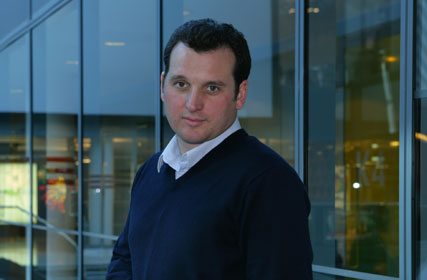Not the Diageo "share price stable" story, nor the "Diageo brands grow" story. No, it was the story about a well-run global business having the temerity to get actively involved in UK health. Or, more specifically, as reported by the BBC: "Drinks company Diageo is to pay for 10,000 midwives in England and Wales to be trained to offer advice on the dangers of alcohol during pregnancy."
Given the UK political class are currently asking us, the voters, to choose between a Cameroonian "Big Society Vision" and the Milibandian tribute-band version, "Responsibility for All Agenda", this was surely good news, right? A modern, international, UK-headquartered business stepping up to the mark and making an active, meaningful contribution above and beyond the pressures of daily business.
In fact, one of the most telling parts of Diageo's initiative is that it is being delivered by the National Organisation for Foetal Alcohol Syndrome UK. A Nofas-UK spokesperson highlighted the good news that this is a prevention rather than cure programme.
So what is there to argue with? Well, given it was a Sunday, there wasn't an avalanche of criticism as such, but there was one very pointed attack by the British Medical Association that perfectly distils the conflict between businesses attempting to engage positively and vested interests who believe the best way to serve the public is to resist commercial involvement, apparently at all costs.
It's worth quoting the BMA comments on Diageo in full: "They certainly have a conflict of interest because it's in the interest of the drinks industry for people to continue to drink and it's in the interest of health for people to drink much less, and certainly not to drink during pregnancy or to drink really minimally."
If nothing else, this points out how far we, in business, have to go to persuade self-appointed guardians of the public good that commercial enterprises have the potential to act with real integrity. Or, to put in another way, it beggars belief that such an august body as the BMA can't understand that Diageo, as with all premium drinks producers, is 100 per cent committed to its drinkers living as long and as fulfilling lives as possible. For obvious reasons.
But perhaps the highlight of the whole affair was the public's response. The BMA's line was picked up online by a vocal GP and the stage was set for the consumer backlash. Only it never happened. Consumers aren't daft. They know that Diageo will ultimately gain a commercial benefit from its recent commitment to midwifery. And they are fine with that. It's almost as if the British public know something that the BMA doesn't.
Richard Exon is the chief executive of Rainey Kelly Campbell Roalfe/Y&R


